ASPBAE calls for transformative SDG 4 towards development justice during APPFSD side event
ASPBAE organised a virtual side event to the Asia Pacific People’s Forum on Sustainable Development (APPFSD) on 24 March 2022, with the theme “Transformative Sustainable Development Goal 4 (SDG 4) Towards Development Justice.” Featuring a panel discussion with three key presentations and an open forum, the event aimed to put forward recommendations on transforming education as well as public education systems towards the vision of addressing inequalities and promoting development justice.
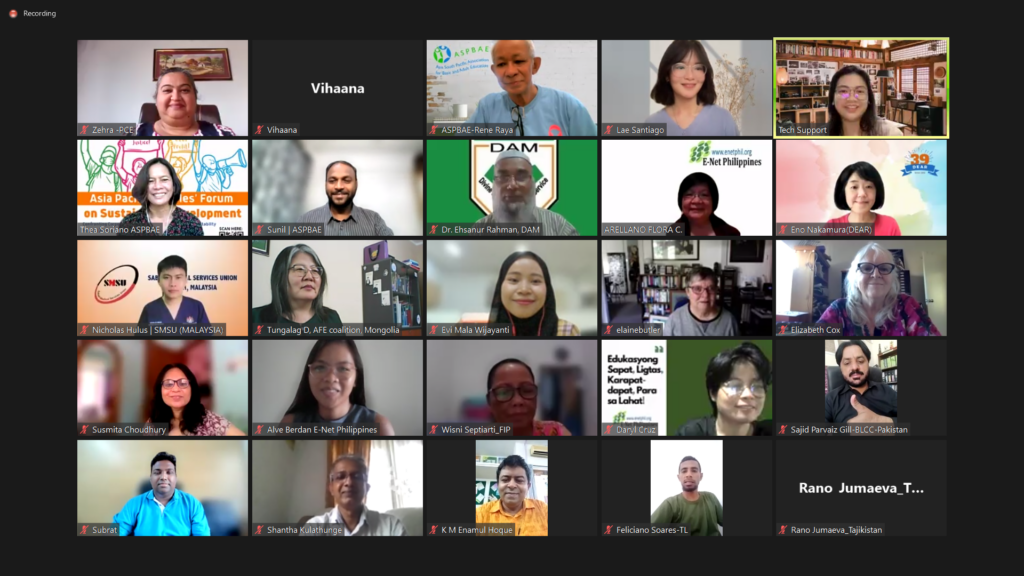
Rene Raya, ASPBAE’s Lead Policy Analyst, moderated the session. He shared an overview of the key issues and progress of SDG 4 amidst the pandemic, raising concerns about the de-prioritisation of education, the neglect of human capabilities and social services, and the corporate capture of education delivery modalities. He added that the pandemic “laid bare the systemic barriers that are keeping us from moving forward in education and development.”
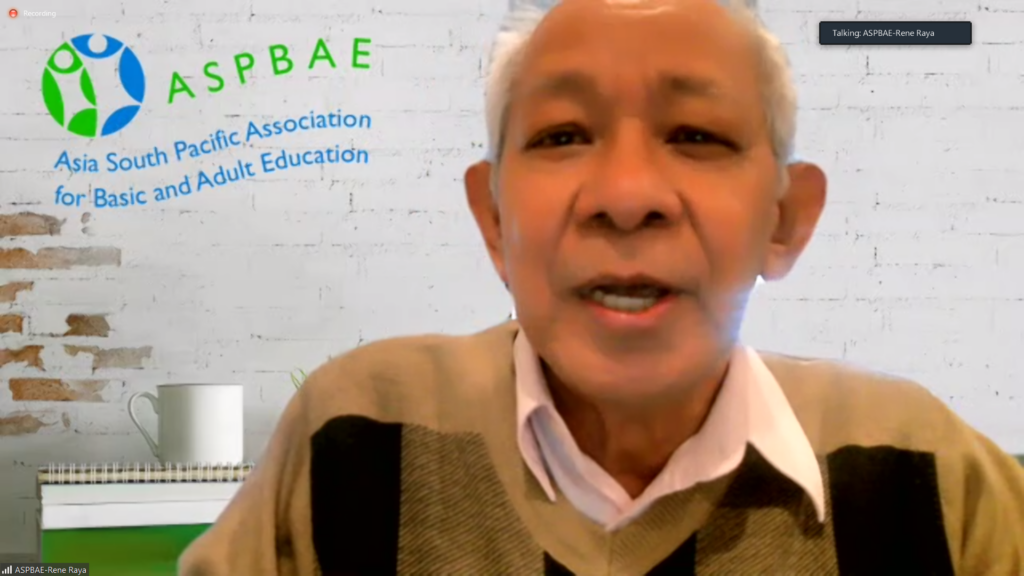
ASPBAE’s Youth Coordinator, Sunil Gangavane, presented the findings and recommendations from the Youth-Led Action Research (YAR) on the impacts of the pandemic on mental health and well-being. Conducted in 10 countries in the Asia Pacific, the research found that mental health stigma, domestic violence, and learning loss were among the issues faced by youth. He emphasised the need for the prioritisation of mental health in public health services for marginalised communities, especially youth and those with disabilities.
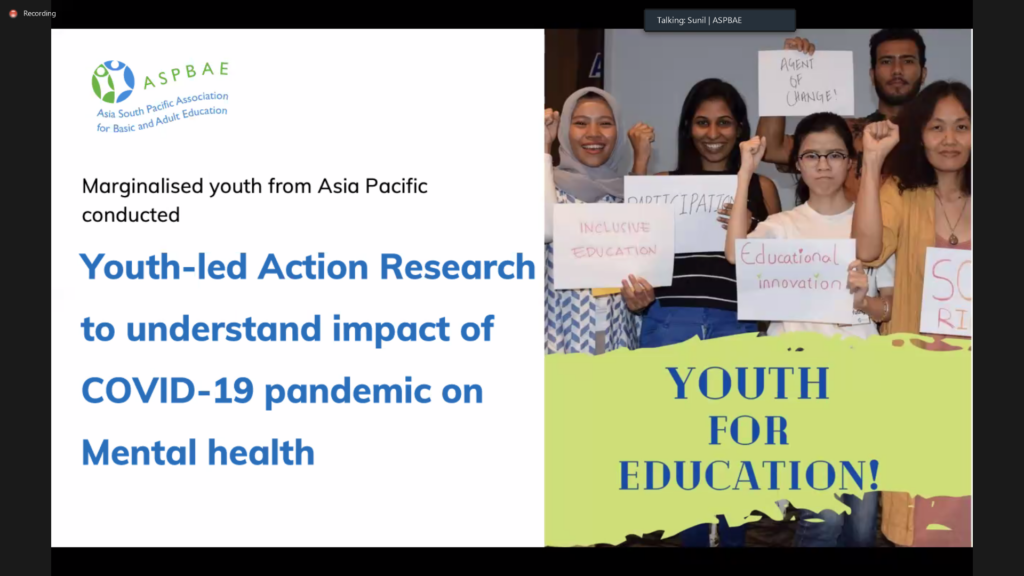
Ehsanur Rahman, Executive Director, Dhaka Ahsania Mission (DAM) in Bangladesh, and ASPBAE Executive Council Member, spoke on Transformative Adult Learning and Education (ALE) and the Review of the Voluntary National Reviews (VNRs) from an ALE Lens. He discussed how education needs to transform and how ALE is integrated into the SDGs. Unfortunately, ALE remains neglected, underfinanced, and low in priority. He, therefore, highlighted the need for ALE to be seen as “a cross-cutting issue” that can meet learning needs and called for a whole-of-government and whole-of-society approach in the implementation of the SDGs.
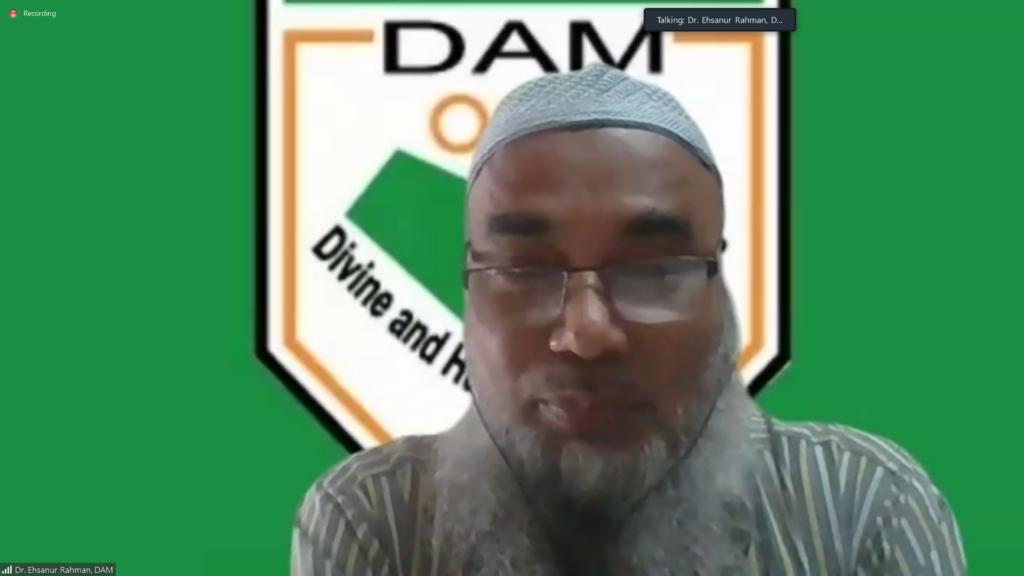
Zehra Arshad, National Coordinator of the Pakistan Coalition for Education (PCE), presented the challenges in financing SDG 4 and the growing commercialisation in education. The cuts in education budgets and narrowing fiscal space impact education provision. She asserts that the “privatisation of education is not the answer to the country’s education crisis; rather it is a symptom of the systemic failure to secure the right to education.” She recommends imposing a wealth tax and eliminating corporate tax evasion to raise domestic resources for education and the establishment of an appropriate regulatory environment for the provision of education services to prevent the corporate capture of education.
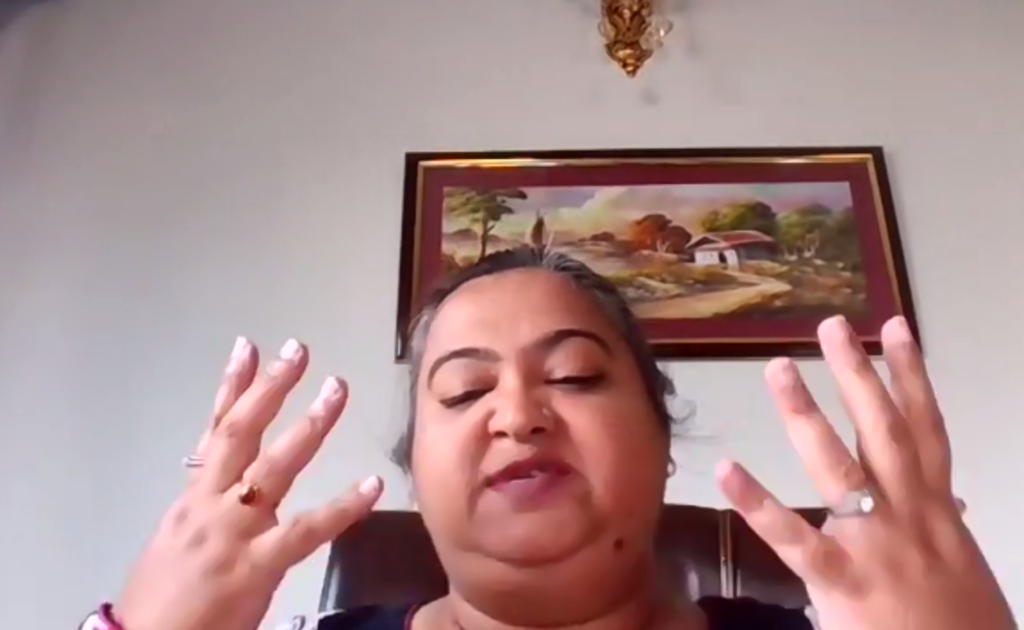
ASPBAE Regional Policy and Advocacy Coordinator, Cecilia (Thea) Soriano, stressed that SDG 4 advocacy should be within the framework of removing systemic barriers and inequalities. She also shed light on the importance of family literacy and intergenerational learning in empowering learners with information and challenging misinformation. She facilitated the open discussions, in which participants shared their insights on other recommendations to address systemic barriers in SDG 4 and cross-cutting issues in SDG 4 that need to be put forward.
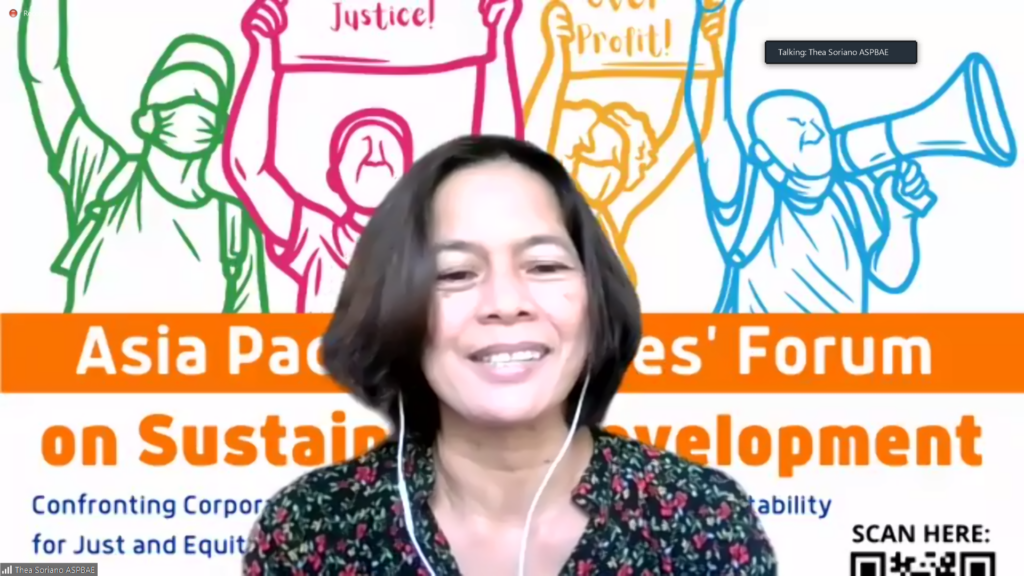
Participants raised concerns about the emerging and continuing education commercialisation and the questions around the accountability of EdTech companies. Others also recommended practising the co-designing of education policies and programmes with cross-age groups and local communities to ensure relevance and flexibility, engaging LGBTQ, particularly transgender learners, and gender-diverse communities in education advocacy, enhancing the nuances in advocacy against education commercialisation, the intersectionality of ALE and its role in expanding education content to addressing issues around identity and identity formation, specifically for youth, and exploring ALE as a necessary component of education even amidst humanitarian crises and emergencies.
Nearing the end of the event, Lae Santiago, ASPBAE Research and Advocacy Officer, shared a brief video that synthesized the highlights of the discussions.